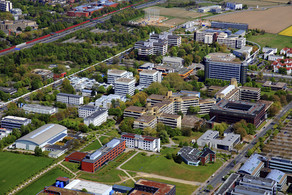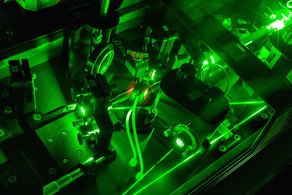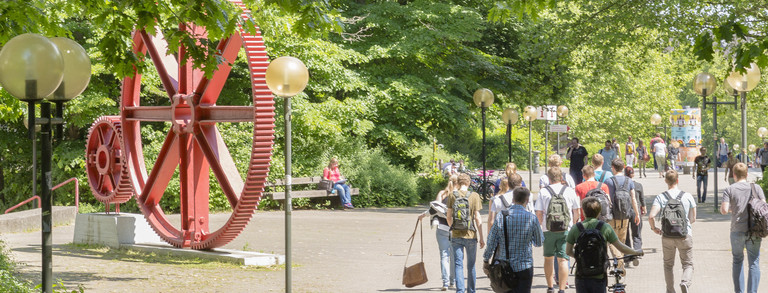TU Dortmund University's understanding of sustainability
TU Dortmund University understands sustainability as an integrative concept that ensures the long-term functioning of the global ecological, economic and social system. In this sense, sustainable stands for securing the quality of life of the present generation without restricting or burdening future generations in the shaping of their lives. For this, the protection of the environment and socially and economically responsible actions are important foundations.
TU Dortmund University contributes to this aim with scientific progress and the transfer of knowledge to society. It is also committed to good working conditions, equal opportunities, equality and the participation of all people in social life, irrespective of their sex, gender, origin, religion and individual or social handicaps.
For TU Dortmund University, sustainability is a joint task in which all its members, professors, employees and students are involved. The importance of sustainability for TU Dortmund University is underlined by the 2015 agreement with the Ministry of Innovation, Science and Research of the State of North Rhine-Westphalia. In this agreement, the university commits itself to developing a university-specific strategy for sustainability and to report on its projects and initiatives.
From the preamble of the Sustainability Strategy of TU Dortmund University
Sustainability Strategy of TU Dortmund
In spring 2021, TU Dortmund University adopted a sustainability strategy that collects current fields of action and identifies areas of action for the future. The strategy is continuously developed and updated. Each area is briefly described below.
Scientists at TU Dortmund University are dedicated to the topic of sustainability in all its breadth. They conduct research on its ecological, social and economic dimensions. These individual research projects can be assigned to the 17 Sustainable Development Goals (SDGs) and thus contribute to sustainable development within research.
The 17 faculties of TU Dortmund University offer 30 subject-related Bachelor's degree programmes and around 40 Master's degree programmes. Many of these study programmes address sustainability topics. The courses offered can be assigned to the Sustainable Development Goals (SDGs).
TU Dortmund University is a national and international pioneer in knowledge and technology transfer. It is a co-founder and shareholder of Technologie-ZentrumDortmund GmbH. This centre is the core of one of the largest technology parks in Europe and promotes the application of ideas from science in the immediate vicinity of the campus.
Ensuring equal opportunities and utilising the potential of diversity are integral parts of TU Dortmund University's daily activities. With its diversity and equal opportunities management, the university supports socially sustainable developments.
TU Dortmund University has built up competences for sustainability tasks and firmly integrated them into its administrative structures and processes. In various departments, divisions and staff units, TU Dortmund University is constantly working to improve itself and fulfil its social responsibility. Concrete examples are given in the sustainability strategy.
The interdisciplinary Sustainability Working Group was founded by TU Dortmund University in 2012. The working group is open to all members of TU Dortmund University and enables students, professors and employees to discuss new ideas and develop and implement sustainability projects together under the motto "hands on".




